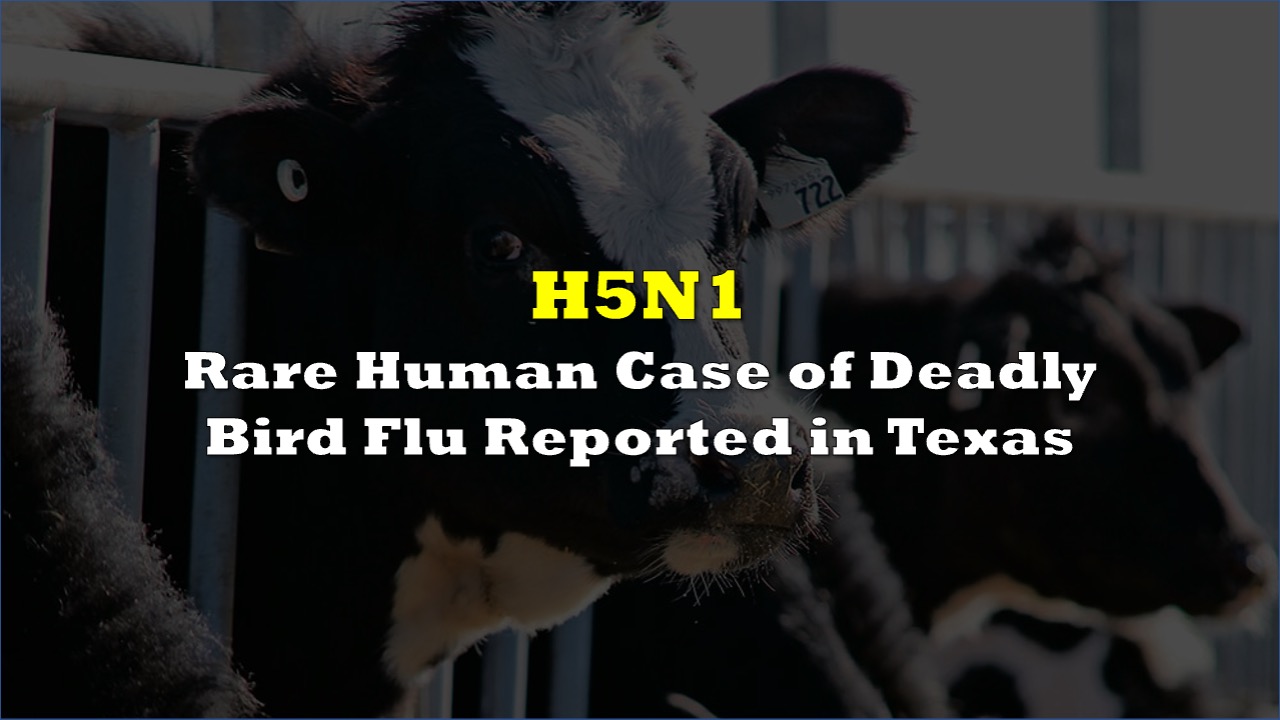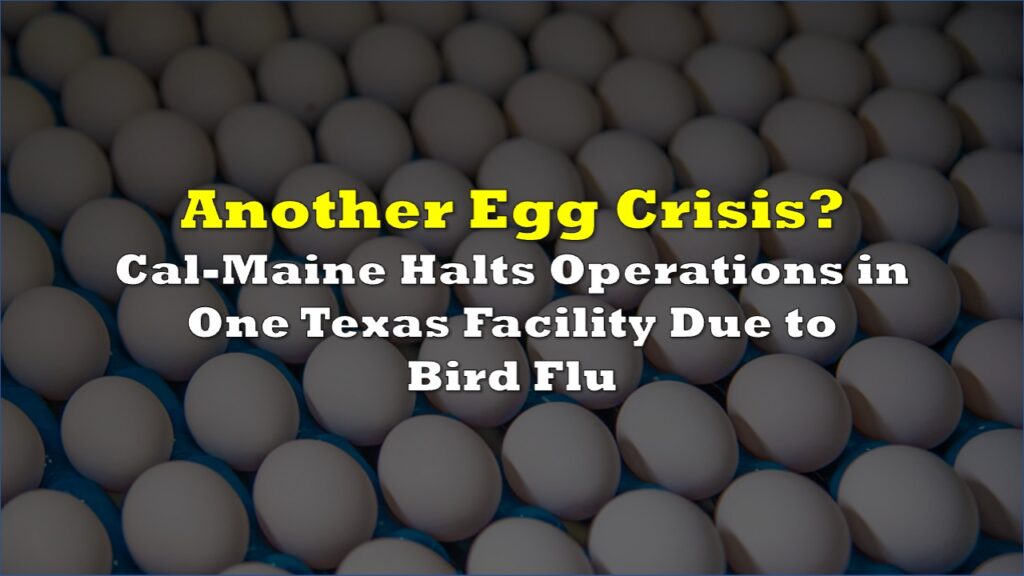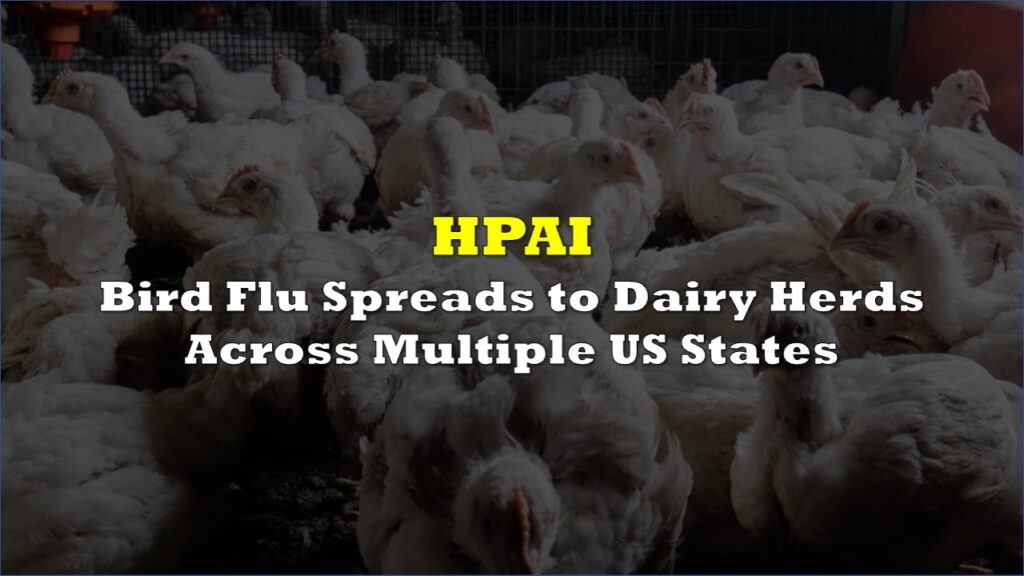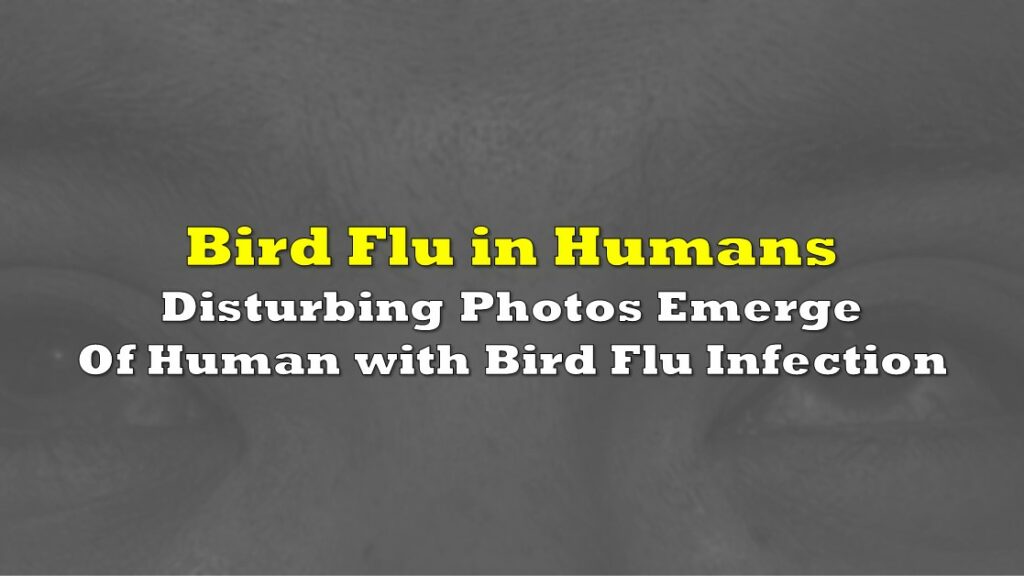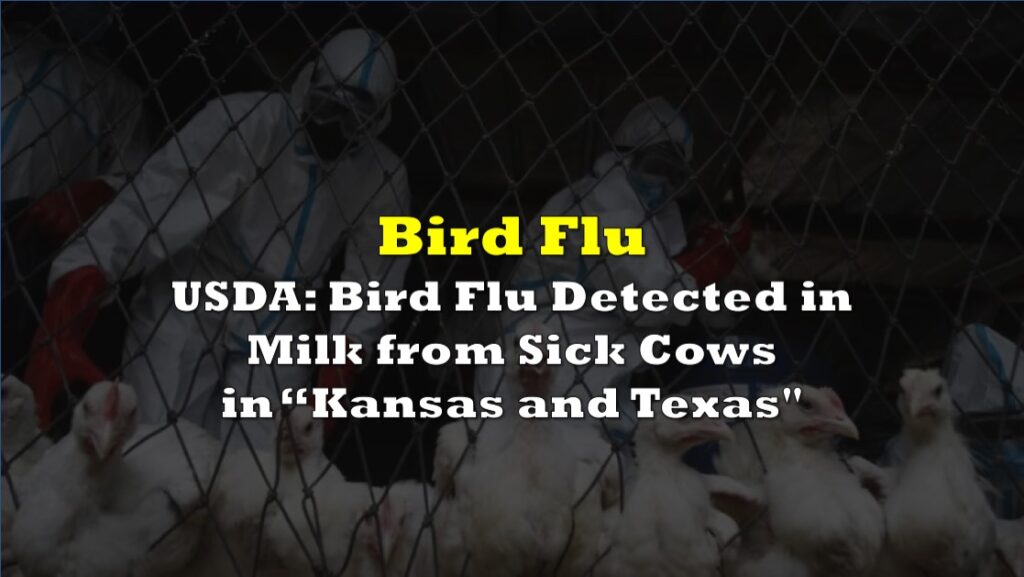A rare human case of the highly pathogenic H5N1 avian influenza, commonly known as bird flu, has been reported in Texas. The infected individual worked at a dairy farm where cattle had recently tested positive for the same virulent strain. This marks the first human case since the virus was detected in dairy cattle across several US states last week.
According to the Texas Department of State Health Services, the person’s only symptom so far has been conjunctivitis, or pink eye. It remains unclear whether the individual contracted the virus directly from the infected cattle or through the same environmental source that led to the cattle infections, which appears to be deceased waterfowl found on the dairy premises.
BREAKING: Human case of highly contagious bird flu confirmed in Texas, health officials say pic.twitter.com/NuLbMx2YtA
— Breaking911 (@Breaking911) April 1, 2024
While human infections with this particular H5N1 strain are uncommon, they can be severe, with over 50% of cases proving fatal, as per data from the Centers for Disease Control and Prevention (CDC). However, both Texas officials and the CDC have emphasized that the risk to the general public remains low.
This Texas case represents only the second human infection with this H5N1 strain ever recorded in the US, according to a statement from the CDC. The previous case, confirmed in 2022, involved a Colorado prison inmate who recovered after experiencing fatigue and receiving antiviral treatment.
The current outbreak has seen the highly pathogenic avian influenza spread rapidly among various bird species and even cross over to other mammals, including polar bears, foxes, and marine animals. Last week, federal agencies announced the first-ever detections of the H5N1 strain in dairy cattle in Idaho, Kansas, Michigan, New Mexico, and Texas, following earlier cases in Minnesota goats.
While concerning, experts note that the virus does not yet appear capable of sustained transmission among cattle or of becoming airborne. However, they stress the importance of monitoring for any mutations that could increase the virus’s ability to infect humans or enable human-to-human spread, which could potentially lead to a pandemic.
To mitigate risks, the CDC advises against consuming unpasteurized dairy products from affected farms and recommends that workers in close contact with infected animals take appropriate precautions, such as wearing protective equipment and monitoring for flu-like symptoms.
As the spring migration of wild birds continues, further localized outbreaks in various animal populations are anticipated. Officials are reassuring the public that the commercial food supply remains safe, as pasteurization and cooking effectively kill the virus. Additionally, a limited stockpile of avian flu vaccines and antiviral drugs like Tamiflu are available should human-to-human transmission occur.
Information for this story was found via the sources and companies mentioned. The author has no securities or affiliations related to the organizations discussed. Not a recommendation to buy or sell. Always do additional research and consult a professional before purchasing a security. The author holds no licenses.

